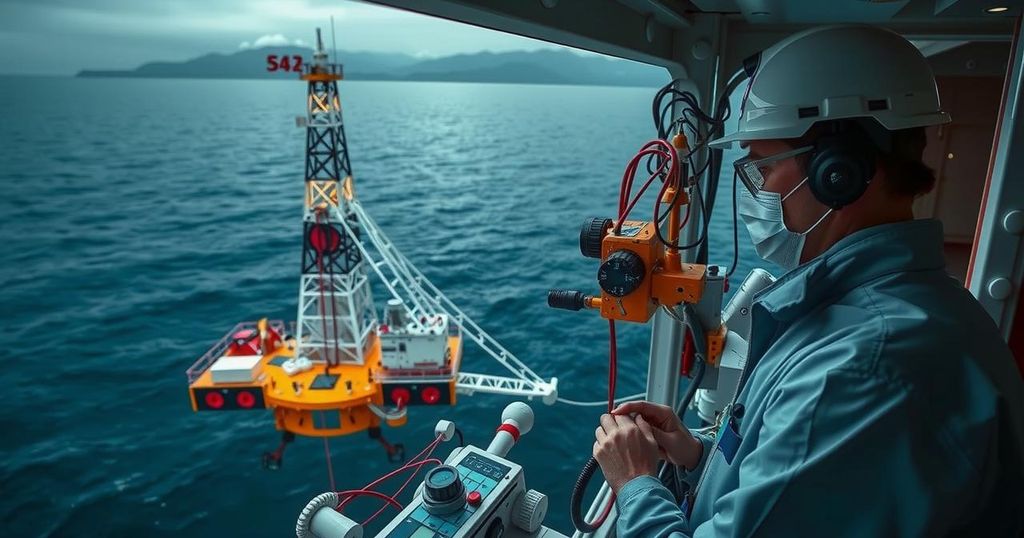Durham Scientist Contributes to Seabed Drilling Study of 2011 Tohoku Earthquake
A Durham scientist, Rebecca Robertson, is part of an international team drilling off Japan’s coast to study the 2011 Tohoku earthquake. The team aims to analyze the fault that caused substantial displacement, contributing to insights on earthquake behavior in subduction zones. This research follows previous projects that took samples from the Japan Trench.
A scientist from Durham is part of an international research team currently engaged in deep-sea drilling off the east coast of Japan, specifically to investigate the catastrophic 2011 Tohoku earthquake and tsunami. This natural disaster was significant, resulting in a tsunami that inundated Japan and caused extensive infrastructure damage, culminating in the Fukushima Daiichi nuclear disaster, which tragically resulted in the loss of 18,500 lives and the displacement of over 160,000 individuals.
The Japan Trench Fast Drilling Project (JFAST), initiated in 2013, previously collected samples from the Japan Trench plate to discern the cause of the earthquake. Presently, experts, including Durham Earth Sciences researcher Rebecca Robertson, are aboard the Chikyu drilling vessel as part of the ongoing Tracking Tsunamigenic Slip Across the Japan Trench (JTRACK) project. This initiative aims to drill through a boundary plate fault at the site of the earthquake to gather samples and analyze physical properties along the drill hole.
As the expedition approaches the conclusion of its four-month duration, the team has successfully progressed through the continental plate to reach the subducting Pacific plate. They have implemented an observatory within the fault and commenced sampling the deep-sea sediments and fault material while also capturing high-resolution imaging of the fault zone for subsequent analysis.
Prior to the 2011 Tohoku earthquake, the prevailing scientific consensus suggested that although subduction zones were responsible for some of the largest earthquakes, the shallow portion of the fault typically remained intact. The Tohoku earthquake, however, underwent unprecedented fault displacement, slipping entirely to the sea floor. By investigating the fault segment that slipped, the JTRACK team aspires to uncover insights into the mechanisms behind this extraordinary seismic event.
Rebecca Robertson is among a select group of three UK scientists participating in the international expedition team, which consists of over 60 experts from Japan, the United States, and Europe. The findings from this research are anticipated to enhance our understanding of earthquake phenomena and contribute to greater preparedness for future seismic events in the region.
The 2011 Tohoku earthquake, one of the largest earthquakes in history, struck off the coast of Japan and triggered a devastating tsunami that inflicted catastrophic damage, including the Fukushima nuclear disaster. This disaster raised pertinent questions about seismic behavior in subduction zones, classically believed to be stable in their shallow depths. The ongoing research through drilling aims to ascertain the underlying factors that contributed to the earthquake, specifically focusing on the slip behavior of the fault involved.
In summary, the JTRACK project seeks to enhance our understanding of the events surrounding the Tohoku earthquake through detailed drilling and sampling at the respective fault location. The involvement of international scientists, including those from Durham, emphasizes the collaborative nature of geological research, as the study endeavors to provide critical insights into earthquake mechanics and ultimately improve preparedness for future seismic activities.
Original Source: www.durham.ac.uk




Post Comment